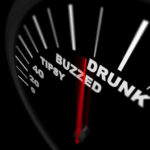Hardship Driver’s License Attorney
Under certain circumstances, it is possible to get a hardship license if your license has been suspended or revoked. The most common reason for seeking a hardship driver’s license is a suspension for an implied consent violation.

What is an implied consent suspension?
Suppose a police officer arrests someone for DUI or OWI. At some point, the suspect will be asked to provide a breath sample for a breathalyzer or a blood sample. Under Michigan law, drivers legally and implicitly consent to a chemical test if lawfully arrested for OWI. If the driver refuses the chemical test, called an “Implied Consent Refusal,” the officer will notify the Michigan Secretary of State. Once someone refuses, they are provided a copy of the form submitted by the officer advising the Secretary of State of the refusal. The form notifies the driver they have 14 days to request an Implied Consent Hearing. As will be more fully explained below, if the driver’s license is suspended, they must seek a hardship driver’s license in a Circuit Court for restricted driving privileges.
Implied Consent Hearing
In Michigan, like in many other states, when you obtain a driver’s license, you implicitly agree to submit to chemical tests (like breath, blood, or urine tests) to determine alcohol or drug content in your body if you’re suspected of Operating While Intoxicated (OWI) or a related offense. This is known as “implied consent.”
The implied consent hearing is the process through which drivers can contest a suspension imposed due to an implied consent refusal. It’s an administrative hearing, and focuses on:
- Whether the police officer had reasonable grounds to believe the driver was operating the vehicle under the influence of alcohol or drugs.
- Whether the driver was placed under arrest for an OWI-related offense.
- Whether the driver was advised of their rights regarding the chemical test.
- Whether the driver “unreasonably” refused to take the test.
The outcome of this hearing doesn’t determine guilt or innocence regarding the OWI charge itself; it solely addresses the one-year license suspension due to the refusal to take the chemical test.
Failure to Request a Hearing Within 14 Days
If the driver fails to request a hearing within 14 days, their driver’s license will be suspended for one (1) year. A suspension is a complete ban on driving. No restricted license or hardship driver’s license is possible from the Secretary of State with an implied consent suspension. Failing to request a hearing has the same effect as having a hearing and losing.

How to Get a Hardship Driver’s License
Someone can request a hardship license from a circuit court judge if their driver’s license is suspended due to a first implied consent violation. Suppose an individual loses their implied consent hearing with the Secretary of State or fails to request a hearing within 14 days. In that case, they can file a Petition for a Hardship License in the circuit court in the county where they were arrested.
The Hardship Petition has precise and complex requirements. It must be filed within 63 days of the imposed suspension unless there is a good reason to file it later (maximum is 180 days). Most circuit court judges also require a substance abuse evaluation with a good to excellent prognosis and other evidence to prove the driver will not be a danger to themselves or the public. The Michigan Attorney General’s office will represent the Secretary of State. The Assistant Attorney General assigned to the case can either be helpful or a significant hindrance depending on how the lawyer handles the matter and the persuasiveness and credibility of the evidence.
Although someone can file for a hardship license without legal representation, it is wise to proceed only with an experienced lawyer with a proven and consistent track record of success. There is no “second bite at the apple.” If you lose, you will not legally drive again until the suspension ends.
An experienced lawyer can often negotiate with the Attorney General’s Office and stipulate or agree to a hardship license. If the parties reach a deal, no court hearing is necessary with most judges.
What is a hardship license?
A hardship driver’s license permits the person to drive:
- to drive only to and from the person’s residence and work location;
- in the course of the person’s employment or occupation;
- to and from an alcohol or drug education program or treatment program as ordered by a court;
- to and from the person’s residence and probation and court-ordered community service;
- and to and from the person’s home and school.
The restricted license also permits the individual to take any driving skills test that the Secretary of State requires. Suppose the implied consent suspension occurred in connection with operating a commercial motor vehicle. In that case, the court cannot grant a restricted license that permits the person to operate a commercial motor vehicle. A restricted license is unavailable unless the person cannot take public transportation for work, alcohol or drug treatment, or school, and no family member or other person can drive them.

Experienced and Effective License Restoration Attorneys
The lawyers with LEWIS & DICKSTEIN, P.L.L.C. have decades of experience and a track record of consistently and reliably winning driver’s license restoration cases and hardship appeals. We have a tried-and-true system for presenting the most compelling arguments and evidence on behalf of our clients. If you call us for a free consultation, we will take the time to talk with you, determine your eligibility for a driver’s license, and work with you to develop a winning strategy. We will find a way to help you.
Call us today at (248) 263-6800 for a free consultation or complete an online Request for Assistance Form. We will contact you promptly and find a way to help you.











